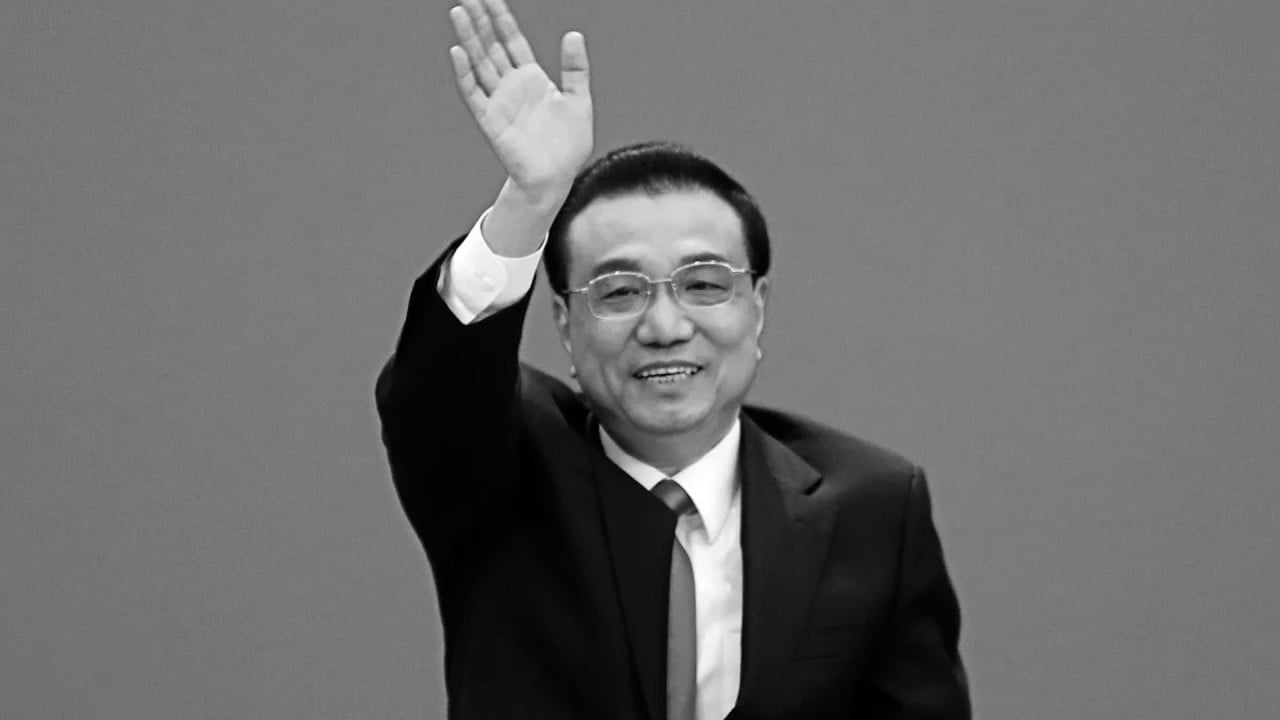
Former premier Li Keqiang’s sudden death ‘a total surprise’ to China’s top leaders
- Official obituary signed by party leadership comes 10 hours after short message from Xinhua on Friday morning announces Li died just after midnight
- ‘State media obviously did not prepare full obituary’, while brief initial announcement aimed to quash conspiracy theories, observer says
State news agency Xinhua only managed to run a very brief official message on Friday morning, with a special note saying the official obituary would come later.
Li had “passed away on Friday in Shanghai” following a “sudden heart attack” the previous night, “after all rescue measures failed”, the short announcement at 8.16am said.
“The obituary will be issued later,” it added.
But it was another 10 hours before Beijing released an official obituary. Published by Xinhua around 6.30pm, the document was signed by the ruling Communist Party leadership, who praised Li’s contribution to the party and state.
Chen Daoyin, a political commentator and former professor at Shanghai University of Political Science and Law, said Beijing seemed underprepared in its messaging.
“I think Li’s death was a total surprise to Beijing’s top leaders, as the state media obviously did not prepare his full obituary, unlike what they will do in the case of party leaders who are known to be very ill,” Chen said.
About the brief first official message, Chen said Beijing chose to announce Li’s passing “as soon as possible, because it wants to curb all the conspiracy theories that might arise from this”.
“Beijing will never divulge the full details of Li’s death. But it looks like they are trying to manage the situation by announcing whatever can be made available to the public domain and moving quickly on the arrangement of Li’s funeral.”
Li, 68, died at 00.10am on Friday during a “rest” visit to Shanghai, according to Xinhua. He had stepped down as premier in March after 10 years on the job.
Medical experts tending to Li Keqiang had done everything in their power to revive Li, sources and analysts told the South China Morning Post.
Two sources based in Shanghai said Li suffered a heart attack on Thursday after swimming at the Dong Jiao State Guest Hotel, where he was staying. He was rushed to nearby Shuguang hospital by his security and healthcare team, a comprehensive support system provided for former senior leaders.
The hospital mobilised “all the resources available and called for top experts in Shanghai” to tend to Li, a person with knowledge of the situation said.
“They tried everything. Unfortunately, they failed to bring him back,” said a second source with direct knowledge of the matter, adding that Li had previously undergone coronary artery bypass surgery.
Both sources said Li’s body had been flown back to Beijing on Friday night.
Deng Yuwen, former deputy editor of Study Times, the official newspaper of the Central Party School where cadres are trained, said funeral arrangements of former state leaders had to be endorsed by the party’s top decision making Politburo, which was holding a regular meeting on Friday.
“[Li’s death] should have been one of the most important agendas of the meeting, as the party needs to decide on the composition of the funeral committee and make sure the proceedings go smoothly. Xinhua can only announce the full obituary after the Politburo meeting approves it,” Deng said.
Li is among very few retired Chinese leaders to have died before reaching the age of 70. Most stay healthy and live well beyond 90, or even 100, their longevity attributed to the comprehensive medical care and security privileges provided to party and state leaders even after retirement.
But former executive vice-premier Huang Ju, like Li, was only 68 when he died in 2007. Then, too, official media released a short announcement on the day of his death, with a full obituary published later.
Special diet plans and dedicated organic food supply are also believed to contribute to their longevity. As early as 1941, the party set up a strict hierarchical supply system based on the Soviet model, giving high-level officials various “special supplies” including food items, tobacco, alcohol, tea and medicine.
Zeng Xuyuan, former director of the nutrition department of Beijing Hospital, who served as a nutrition and health expert for top leaders, and Li Ruifen, former director of the nutrition department of the Beijing Military Region General Hospital, revealed the special dietary principles of leaders in a 2012 interview with party mouthpiece People’s Daily.
According to Zeng, Chinese leaders’ dietary priorities include eating 25 kinds of food every day so that they can have the right mix of balanced nutrition.


